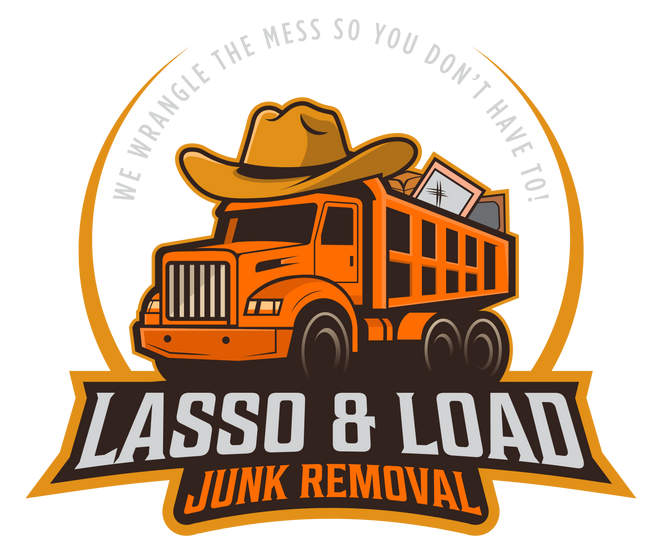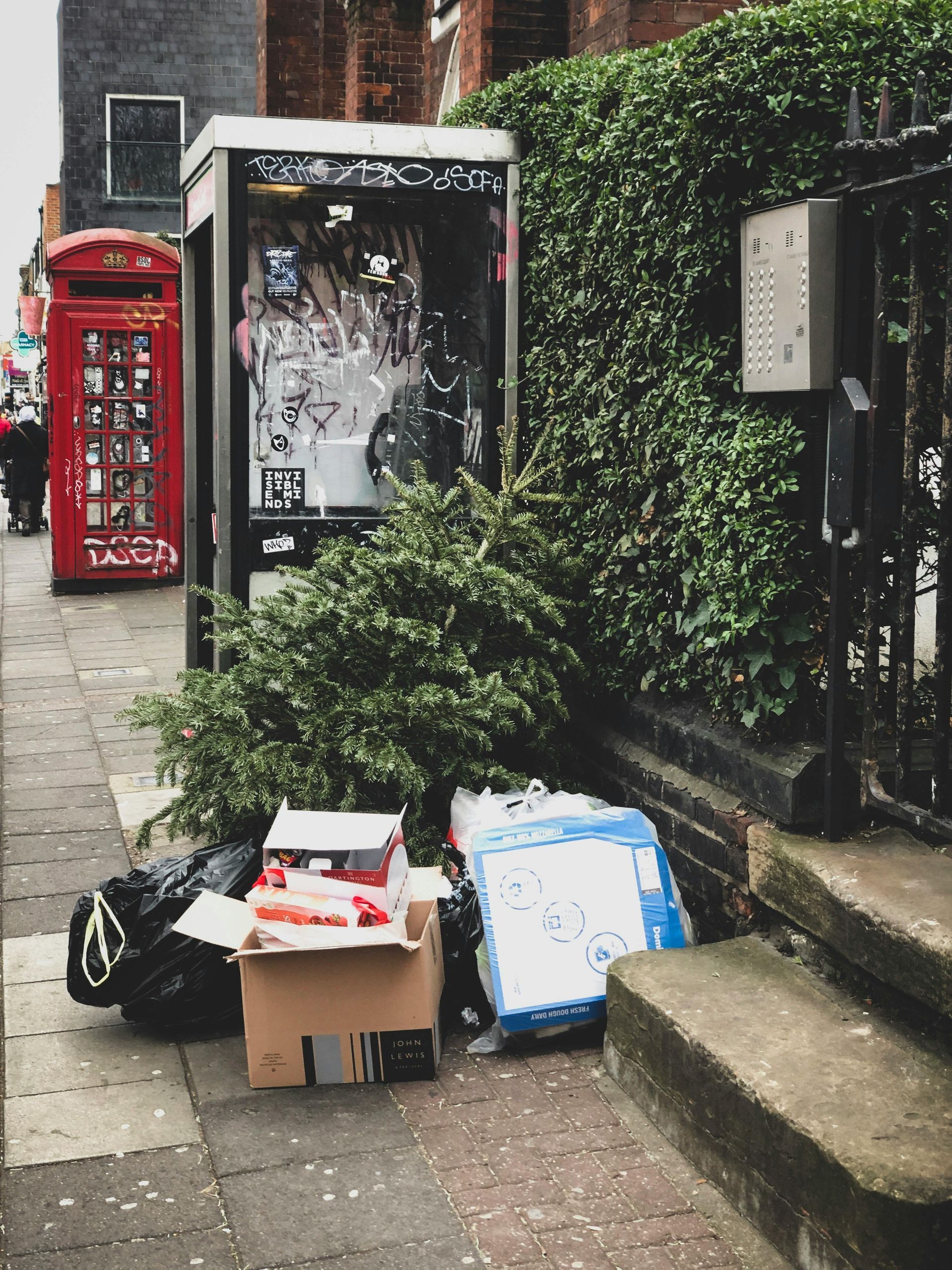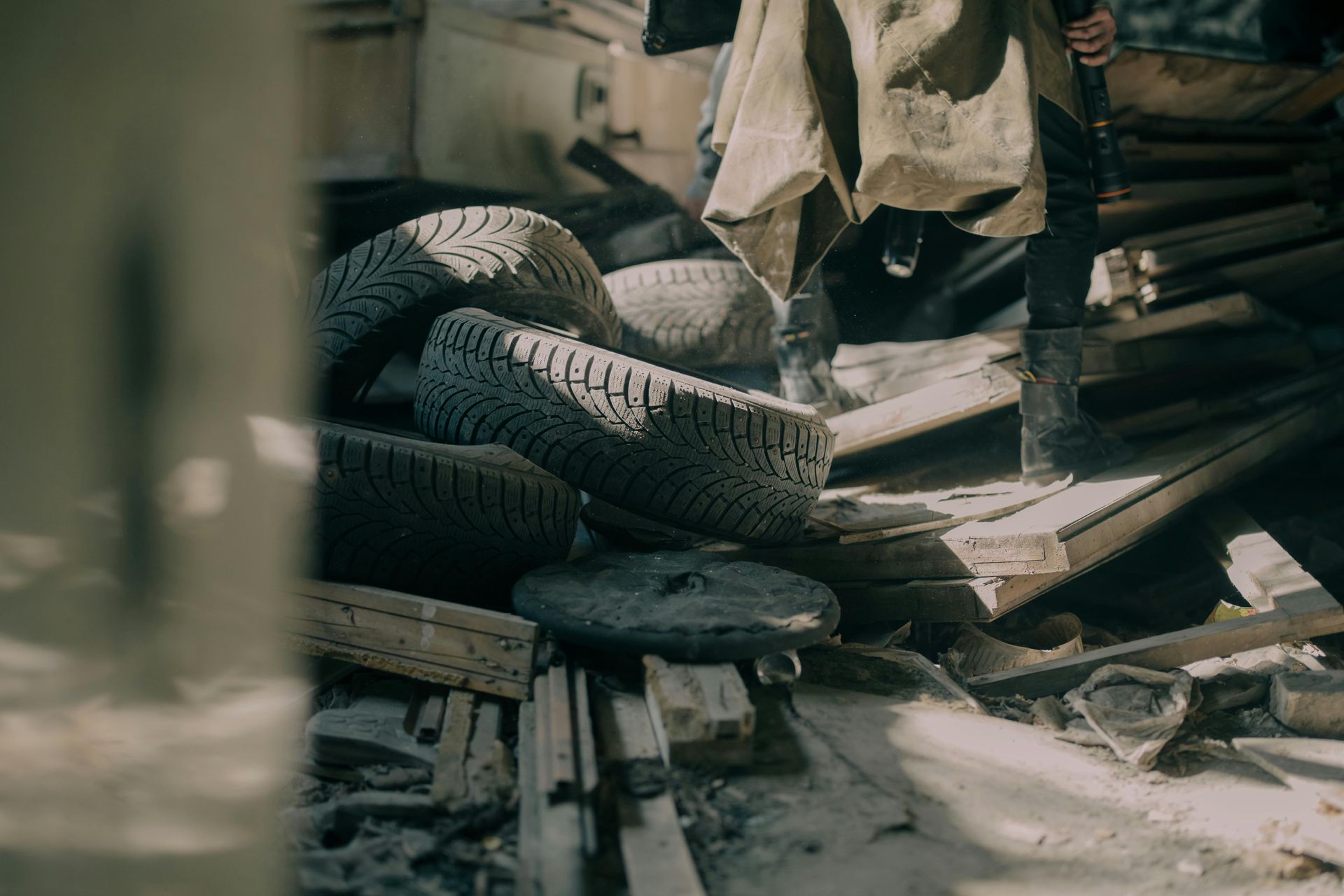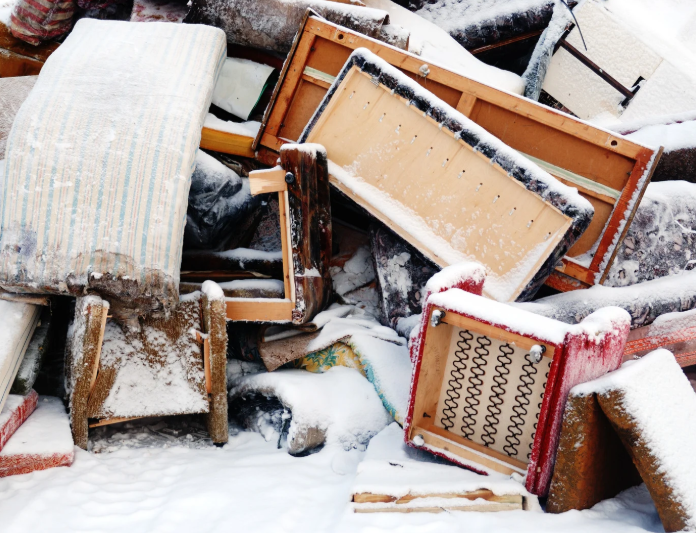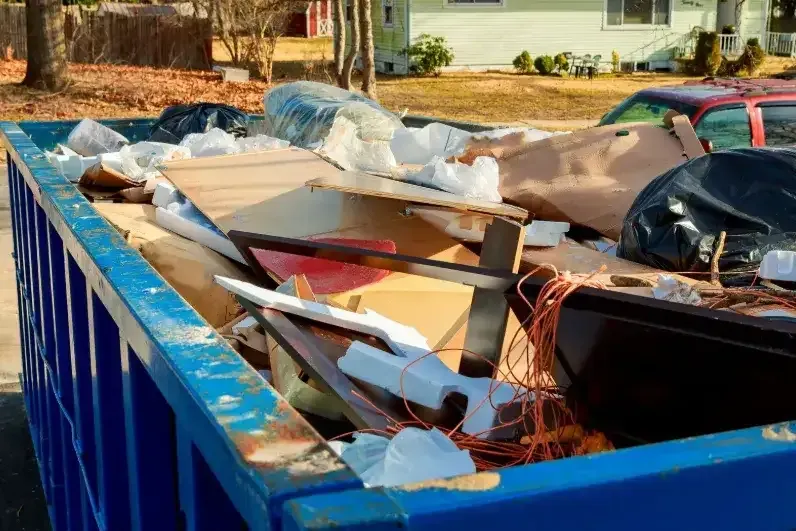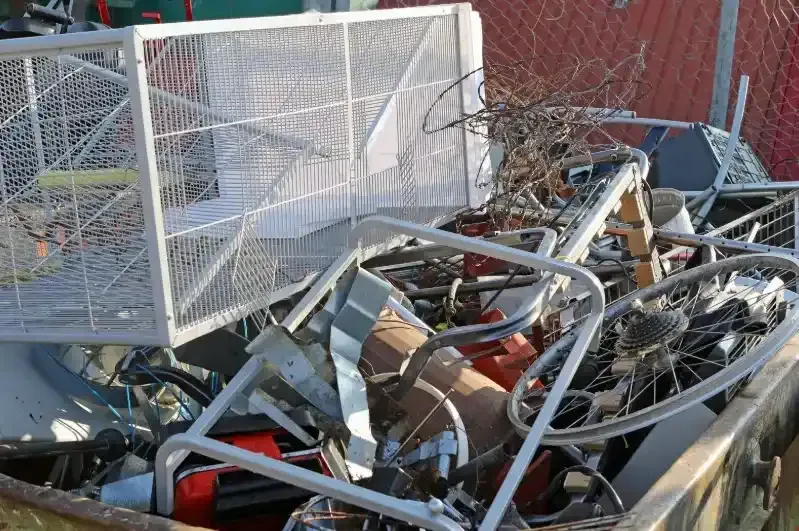Demolition Cleanup vs. Junk Removal: What's the Difference?
At first glance, demolition cleanup and junk removal may seem like two sides of the same coin—both involve hauling things away, clearing space, and making room for something new. But dig a little deeper, and you’ll find these services operate in entirely different worlds. One works amid drywall dust, twisted nails, and torn-down structures. The other works in cluttered garages, overflowing offices, and storage rooms packed with forgotten stuff. Their goals overlap—clearing space—but the methods, tools, and expectations couldn’t be more different.
Understanding the distinction between demolition cleanup and junk removal can mean the difference between hiring the right crew or wasting time and money on a team not equipped for the job. If you’re planning a renovation, a big cleanout, or simply want your space back, this guide will help you choose wisely—and avoid common mistakes people make when trying to clear the chaos.
Understanding Junk Removal Services
Now shift your view. Picture a basement filled with cracked furniture, aging electronics, and boxes of tangled holiday lights no one has touched in years. There’s no drywall dust, no exposed studs—just things. Things that don’t belong anymore. This is where junk removal shines. Unlike demolition cleanup, junk removal isn’t necessarily tied to construction. It’s about reclaiming space and getting rid of the non-essentials, whether it’s from a garage, attic, storage unit, retail space, or office that’s been bogged down by years of accumulation. The process is straightforward: identify what’s got to go, schedule a team, and watch them do the lifting, loading, and disposal.
But don’t mistake “simple” for “easy.” Proper junk removal means sorting materials, separating recyclables, handling large or awkward items, and doing all of it without damaging the property or creating more mess. Junk removal services are usually more flexible in scheduling and less bound by safety codes, but that doesn’t mean they’re less important. They provide immediate visual transformation—rooms feel bigger, lighter, more usable the moment the junk is gone. They also offer recurring support. Businesses with regular waste cycles often lean on junk haulers to keep operations flowing. And while there’s overlap with demo cleanup in some post-renovation scenarios, the core purpose is different: junk removal is about decluttering, not rebuilding.
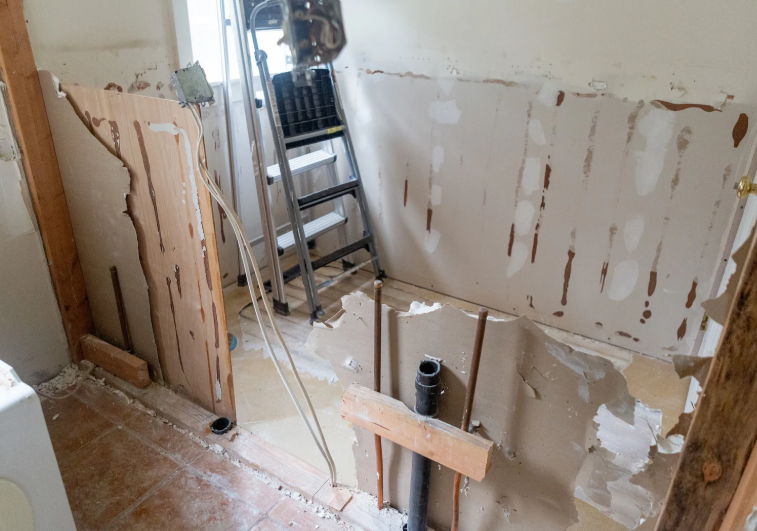
The Tools and Tactics That Set Them Apart
The contrast in equipment alone tells a big part of the story. Demolition cleanup often requires heavy-duty tools: sledgehammers, shop vacs, skid steers, wheelbarrows, and protective gear for everyone on site. These crews might be dealing with compromised structures, embedded nails, and industrial materials that require special disposal permits. Cleanup teams must work carefully around live wires, leaking pipes, and unsafe flooring. It’s physical labor with a risk factor and a purpose that leads directly to the next phase of construction.
Meanwhile, junk removal teams show up with a box truck, dollies, furniture sliders, and the ability to pack efficiently. Their strength lies in speed and convenience—show up, haul out, clean up, and move on. They’re fast, professional, and trained to remove large items without damaging your home or office. In most cases, you point at the junk, and it’s gone by the time you blink twice. Some crews even offer light demolition as a hybrid service: think disassembling old sheds or breaking down playsets.
When the Lines Blur Between the Two
It’s not always black and white. There are scenarios where junk removal blends into demolition cleanup, especially in light remodels or small-scale projects. For example, tearing out carpet and hauling it away? That’s technically demo, but many junk removal companies can handle it. Removing kitchen cabinets after a rip-out? Again, either service might take care of that depending on the size of the job and the materials involved.
But the question becomes: what’s the intention behind the task? If the focus is on preparing the space for contractors or building anew, then you’re likely dealing with demolition cleanup. If it’s about emptying the space for better use, decluttering, or moving out, junk removal is the better fit.
Recognizing this distinction can also save money. Hiring a demo cleanup crew for basic junk removal is overkill. On the flip side, expecting junk haulers to safely remove hazardous post-demo debris without the right gear or licenses can slow down your project—or even put people at risk.
Legal and Environmental Considerations
With demolition cleanup, there are often legal and environmental protocols to follow. Certain materials—insulation, treated wood, lead paint, asbestos—can’t simply be tossed into any landfill. Licensed cleanup teams know where and how to dispose of these responsibly. There are also city ordinances, building permits, and environmental regulations tied to demolition that add layers of oversight to even simple jobs.
Junk removal isn’t free from regulation, either, especially when it involves e-waste, old TVs, batteries, or appliances containing freon. Ethical junk removal services go beyond tossing everything into a dump. They prioritize donation, recycling, and proper sorting. The environmental impact matters—both for sustainability and compliance.
Commercial Spaces vs. Residential Jobs
Another way to spot the difference is by the setting. Commercial demolition projects often involve large-scale cleanup, heavier materials, and tight deadlines. Everything needs to be removed on a schedule that aligns with other contractors or regulatory timelines. A missed cleanup could delay the next crew, costing real dollars. In residential settings, junk removal plays a more personal role. It’s about homeowners clearing out their garages, families downsizing, landlords preparing for new tenants, or simply making room for something better.
While some of these may follow renovations, they’re generally independent of the kind of structural changes that call for demo crews. And in commercial junk removal? The stakes are a little different. Think about retail stores clearing seasonal inventory, office spaces getting rid of outdated cubicles, or property managers needing full-unit cleanouts. The junk isn’t always heavy—but there’s often a lot of it. Speed and discretion become more valuable than tools and debris shields.
The Cost Factor: Know What You’re Paying For
Demolition cleanup is usually more expensive. And for good reason—it requires specialized training, disposal protocols, equipment, and time. You’re paying for safety as much as service. There's also the logistics of hazardous waste handling or working alongside general contractors. These teams are often on-site longer and working under stricter conditions. Junk removal, on the other hand, is usually billed by volume or truckload. It’s fast, efficient, and tailored to those who need things gone without the drama.
It's a pay-for-what-you-haul model that works for most homeowners and small businesses. Misjudging what kind of service you need can cost you extra. You don’t want to hire demolition specialists to clean out a garage full of junk. But you also don’t want to bring in a junk crew expecting them to clear concrete slabs and rebar from a remodel.
Project Planning and Workflow Differences
Every project starts with a plan—or at least it should. And this is where demolition cleanup separates itself sharply from standard junk removal. When a demo cleanup crew is called in, they’re part of a larger blueprint. They need to coordinate with contractors, work within permit guidelines, and often operate under time constraints dictated by a larger buildout. The cleanup has to be methodical, phased, and aligned with construction milestones. This means selective removal, containment zones, and waste separation based on municipal rules.
Junk removal doesn’t typically require this level of choreography. It’s a standalone service—call, confirm, clear out. The team shows up, loads the truck, and disposes of items responsibly. While some advanced junk removal jobs may require walkthroughs and staging plans (especially in hoarding situations or multi-unit cleanouts), the workflow is much more fluid. There’s less coordination with other crews, and timelines are usually quicker.
Environmental Impact and Disposal Ethics
Both services should prioritize environmentally responsible disposal—but how they approach it differs. Demolition cleanup often results in construction and demolition (C&D) waste, which includes concrete, wood, asphalt, bricks, glass, and drywall. Many jurisdictions require this to be sorted and taken to specialized recycling centers. Crews might also need to provide weight tickets, disposal manifests, and receipts for hazardous materials. Junk removal leans into sustainability in a different way. Because they deal with usable goods—furniture, electronics, clothing, household goods—they often divert items from landfills by donating or recycling. A good junk removal service won’t just dump everything at the nearest transfer station.
They’ll route metal to a scrapyard, electronics to an e-waste recycler, and gently used items to local nonprofits. It’s part logistics, part community service, and part environmental stewardship. If your cleanup involves recyclable demolition waste, you’ll need a company that knows how to track and document disposal. If your priority is minimizing landfill impact from household or office goods, a junk removal crew with donation partnerships may be your best bet.
Conclusion
Choosing between demolition cleanup and junk removal isn’t just a matter of convenience—it’s a decision that shapes how effectively your project moves forward. Demolition cleanup is built for precision and safety. It’s about clearing away structural debris, handling hazardous materials with care, and prepping a space for renovation or construction. It requires coordination, technical skill, and a deep understanding of site management. On the flip side, junk removal focuses on removing everyday clutter—furniture, appliances, boxes, and general waste—efficiently and with minimal disruption to your day.
Knowing which service matches your situation helps you avoid costly delays and ensures the job gets done right the first time. Each service serves a specific purpose, and when used correctly, they complement the bigger picture of your home or business improvement goals. For reliable help in Gwinnett Co, trust the professionals who know the difference and deliver the right solution every time. Contact Lasso & Load Junk Removal today at 404-227-2017 or email Lauren.renwickk@gmail.com to schedule your cleanup and experience a service that respects both your space and your schedule.
